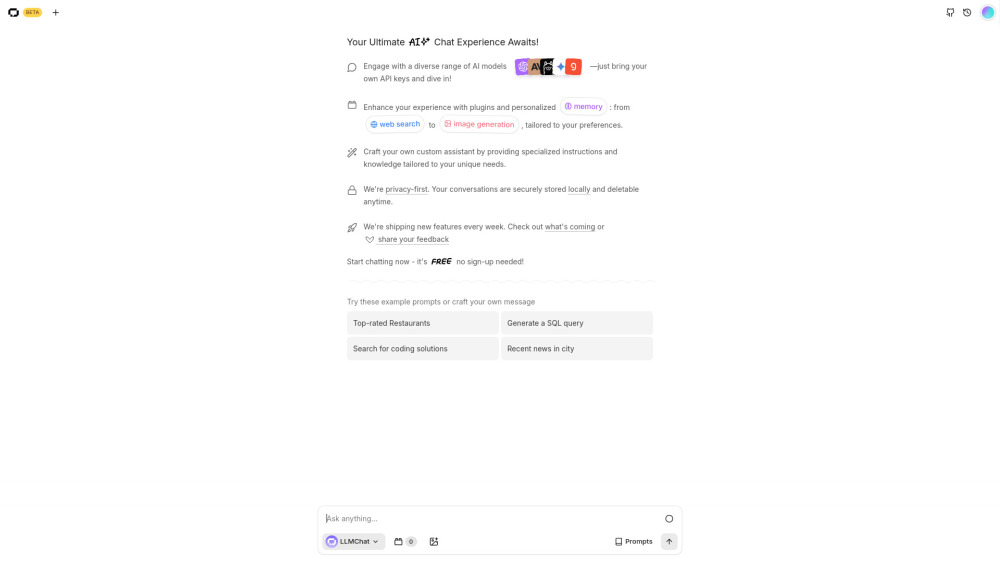Facebook Develops AI to Handle Irrelevant Data Like Spoiled Milk: A New Approach to Data Management
Most people like

Discover an online math platform designed for personalized learning. Our innovative approach tailors educational experiences to individual student needs, ensuring a more effective and engaging way to master math concepts. Join us to enhance your mathematical skills with customized lessons, interactive tools, and supportive resources that cater to every learner's unique journey. Embrace the future of math education today!

Introducing an AI chat platform dedicated to privacy and optimized for seamless interactions with leading large language models (LLMs). Experience secure, engaging conversations while enjoying the benefits of advanced AI technology.

Unlock your creativity with our daily word game designed for effortlessly generating stunning AI art. Transform words into visually captivating masterpieces in just a few clicks, making art creation accessible for everyone!
Find AI tools in YBX
Related Articles
Refresh Articles

